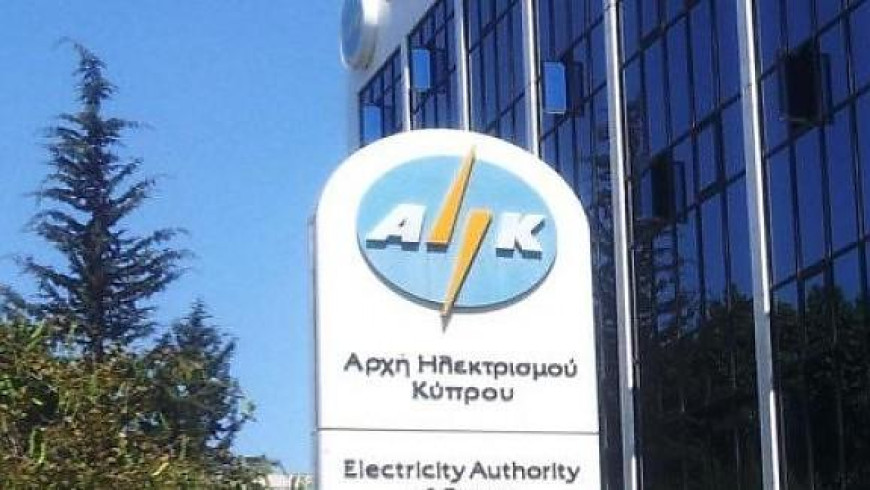Cyprus: Wealthy Households with High Debt and Relatively Low Incomes

Ultimately, economics is about people. In this connection the ECB Household Finance and Consumption Surveys (HFCS) provide valuable data for assessing developments in the levels of economic and financial well-being of households of countries in the euro area. Thus, this piece using the most recent HFCS for 2021[1] focuses on the economic and financial situations of Cyprus households relative to the average of households in the euro area, giving emphasis to the wealth and income inequalities adversely affecting resource allocation and living standards.
The Data
Ever since 2010 according to HCFS surveys the net wealth of Cyprus households has remained well in excess of the average of counterpart households in the euro area despite the deposit haircut in 2013 and the large decline in house prices from their peak in 2008. The latest HFCS indicates that the median net wealth of Cyprus households was estimated at 200,400 euro in 2021 compared with an average of 123,500 euro for the euro area. Only households in Luxembourg and Malta are estimated to have higher median net household wealth than Cyprus. Households with the top 10 per cent of incomes held over 46 per cent of the net wealth, which was mostly invested in Cyprus real estate. In contrast, Cyprus households ranking in the bottom 50 per cent of incomes held less than 10 percent of this wealth.
Conversely, the median value of the holdings of financial assets by Cyprus households are much lower at 5,500 euro compared with the average of 15,000 euro for households in the euro area. And given the dormant capital market ever since the stock market collapse and scandal of 1999/2000, Cyprus households have owned little in public-traded shares compared with their euro area counterparts, a factor that in turn has contributed to the heavy reliance of Cyprus entities on debt for their financing.
Indeed, owing mainly to Cyprus households owning relatively higher amounts of debt-financed real estate their average financial liabilities were more than those of households in the euro area. In fact, in 2021 it is estimated that the median value of the outstanding debt of Cyprus households was 66,400 euro as against a much lower 30,400 euro for their euro area counterparts.
In contrast to the relatively high value of net wealth of Cyprus households, their average incomes have been lower than the average of euro area households. In 2021 median annual gross income per household in Cyprus was estimated at 28,000 euro compared with a median of 34,000 for euro area households. But, as in Europe the distribution of income is quite unequal with the top 10 per cent of Cyprus households having median annual gross incomes of 89,200 euro compared with the bottom 20 per cent of households receiving a corresponding income of a mere 9,100 euro.
Given their lower incomes and higher debt, the debt servicing burden of Cyprus households is much greater than that of European households. In fact, in 2021 the debt service to income ratio of Cyprus households was estimated at 20.5 per cent compared with 12.8 per cent for indebted euro area households. However, what is most striking is that lower income households had much higher debt service ratios averaging well over 30 per cent making it extremely difficult for them to not only repay loans, but to save and add to their wealth. And even households in the middle-income quintile (40 to 60 per cent) on average had a high debt servicing ratio of 23.3 per cent.
Moreover, the ability of lower and middle-income Cyprus households to save and add to their wealth is being significantly damaged by rising expenses associated with debt servicing and higher consumer prices. Indeed, only 7.8 per cent of households in the bottom 20 per cent of incomes were estimated to have the ability to save (“regular expenses less than income”), while just 21.8 per cent of middle-income households had such saving capacity in 2021. On the other hand, a majority of households in the top 10 per cent income bracket are estimated to have the ability to save and accumulate assets and thus widen wealth inequalities.
Composition and Use of Household Wealth
Real Assets
How can the discrepancy between the relatively high levels of household wealth and relatively low levels of household income in Cyprus compared with euro area households be explained? Although there is a two-way relationship between household wealth and incomes, much of the explanation would appear to lie in the inability of Cyprus entities to use their resources, including household wealth, to raise productivity to the higher levels of many euro area countries. Indeed, Eurostat estimates show that labor productivity per employee for Cyprus was 18 per cent below the EU average in 2021.
Low productivity is attributable partly to households in Cyprus having a greater proportion of their physical wealth in real estate comprising mainly residential housing. It is estimated that over 80 percent of Cyprus households had real estate wealth in 2021 compared with an average of 66 percent for euro area households and 49 per cent for a high productivity country like Germany. And a considerable part of the wealth of Cyprus has been invested in sparsely occupied apartment buildings and commercial establishments, capacity that adds little to production and in effect diminishes productivity.
But apart from the relatively less-productive composition of the physical assets of Cyprus households, it is the inefficient use of its real and financial assets as well as that of human capital by Cyprus entities that has contributed most to its relatively low productivity levels.
In Cyprus as in many other countries wealthy individuals have immense political and market power. Wealthy property developers, retailers and hoteliers in Cyprus use such power to influence government policies to specifically promote property development, buoyant household consumption and mass tourism. Indeed, the prolific channeling of resources into the more labor-intensive construction, retail, and food services and accommodation sectors is reflective to a considerable extent of the way wealth is owned and controlled in Cyprus. And with employers in the retail and hospitality sectors at least employing mainly unskilled labor the resultant productivity and wages of labor is low. Furthermore, the relatively modest levels of capital intensity of economic activities in Cyprus keeps total productivity quite low. In fact, Eurostat data reveal that investment per employee in Cyprus ranked 17th among 27 EU countries.
Although labor shortages exist in the rapidly expanding hospitality and retail sectors, hoteliers and large retailers have used their market and political power to suppress wages of workers below productivity levels. Indeed, in 2021 the average gross monthly earnings for employees in the hotel and retail sectors were estimated, respectively, at 950 euro and 1,306 euro according to CYSTAT, that is, well below the total economy average of 2,056 euro.
In addition, despite the lack of employment opportunities in other areas of the economy low wages have made many Cypriots reluctant to take on jobs in the hospitality and retail sectors. However, labor shortages have been overcome by foreign workers, including asylum seekers, willing to accept meagre wages, thus contributing to Cyprus remaining a low wage economy.
Furthermore, the human capital resources of Cyprus are not being used efficiently owing partly to the government appointing and promoting many employees on the basis of their political and personal affiliations rather than on merit. Also, with the relative absence of high-tech companies in Cyprus there is a dearth of decent jobs for skilled and well-qualified persons in the private sector. Consequently, many talented younger persons are under-employed or remain unemployed, while others decide to emigrate, resulting in Cyprus being robbed of their potential for raising productivity.
Financial Assets and Liabilities
As indicated above the inactive capital market in Cyprus makes companies extremely reliant on debt rather than equity to finance their activities. Hence, it is very disappointing that Cyprus banks are not using a large proportion of the financial assets of their customers in the form of bank deposits to help finance productive activity by extending loans to non-financial corporations and households. In fact, a large amount of the assets of Cyprus banks lay idle in that their cash and cash balances held at Central banks have constituted at least 35 per cent of their total assets since mid-2021. This compares with an average share of such liquidity in total assets of 16 per cent for the systemically important banks of 17 other euro area countries.
Also, with much of the lending of Cyprus banks being based on the security of real assets wealthy property owners are favored. In addition, without bankers undertaking a proper evaluation of the viability of the borrower’s project and ability to repay, many loans become impaired resulting in Cyprus banks having the highest ratio of NPLs to total loans in the euro area. Indeed, reflecting the relative inability of Cyprus banks to use their funds productively their return on assets has over recent years has been well below that of most other banks in the euro area.[2] For 2021 the return on assets of the two systemically important banks of Cyprus was estimated at 0.09 per cent, whereas the average for the other systemically important banks of the euro area was 0.41 per cent[3].
The continued onerous debt burdens of many Cyprus households is impeding their ability to undertake productive investments. In truth, bankers complain that many potential customers with their relatively high debt-to-income ratios are uncreditworthy and should not be extended new loans. And bankers seem also to have a reluctance to restructure many impaired loans to enable the continued operation of many small businesses, but rather prefer to call-in and sell these NPLs and the related collateral of the borrower to third parties. However, with such transactions, NPLs of banks are reduced, but households continue to remain heavily indebted. Moreover, the investments and production of small businesses are curtailed, while wealth assets are just transferred to usually richer entities.
Concluding Remarks
With their much higher ownership of real estate, Cyprus households by 2021 remained wealthier than their counterparts in most euro area countries. However, continued sizable investments in the over-supplied luxury property sector and higher rates of consumption, especially of motor vehicles, by Cyprus households compared to their euro area counterparts together with government policies have contributed to the prolific channeling of resources to the lower productivity property, retail and hospitality sectors. And with employment in these sectors mostly comprising unskilled persons labor productivity is low, while at the same time wealthy employers have used their market and political power to suppress wages below productivity. This in turn has meant that the incomes of the many households dependent mainly on the remuneration of private sector employees have remained low, thus curtailing their ability to save, accumulate wealth, and, most importantly, repay their heavy debt obligations
Indeed, given their lower income levels, the debt servicing requirements of lower and middle-income Cyprus households became particularly burdensome by 2021. And, furthermore, as a result of the recent higher inflation and the sharp rise in interest costs and bank charges, the financial fragility and economic well-being of lower and lower middle-income households must have worsened since 2021, thus, narrowing more the wealth gap between Cyprus and euro area households and widening further economic inequalities including decent employment opportunities[4] in Cyprus.
[1] ECB “Household Finance and Consumption Survey, Fourth Wave, Statistical Tables”, July 2023
[2] The higher profits of Cyprus banks in 2022 and 2023 were attributable to their very large deposits at Central Banks earning annual interest of 4 per cent rather than on their increased extension of interest-bearing loans in financing economically viable projects.
[3] ECB, “Supervisory Banking Statistics”, for four quarters of 2021.
[4] By December 2023 the seasonally adjusted youth unemployment rate in Cyprus had reached an astounding 19.9 per cent.







 3287.99
3287.99 1275.09
1275.09

